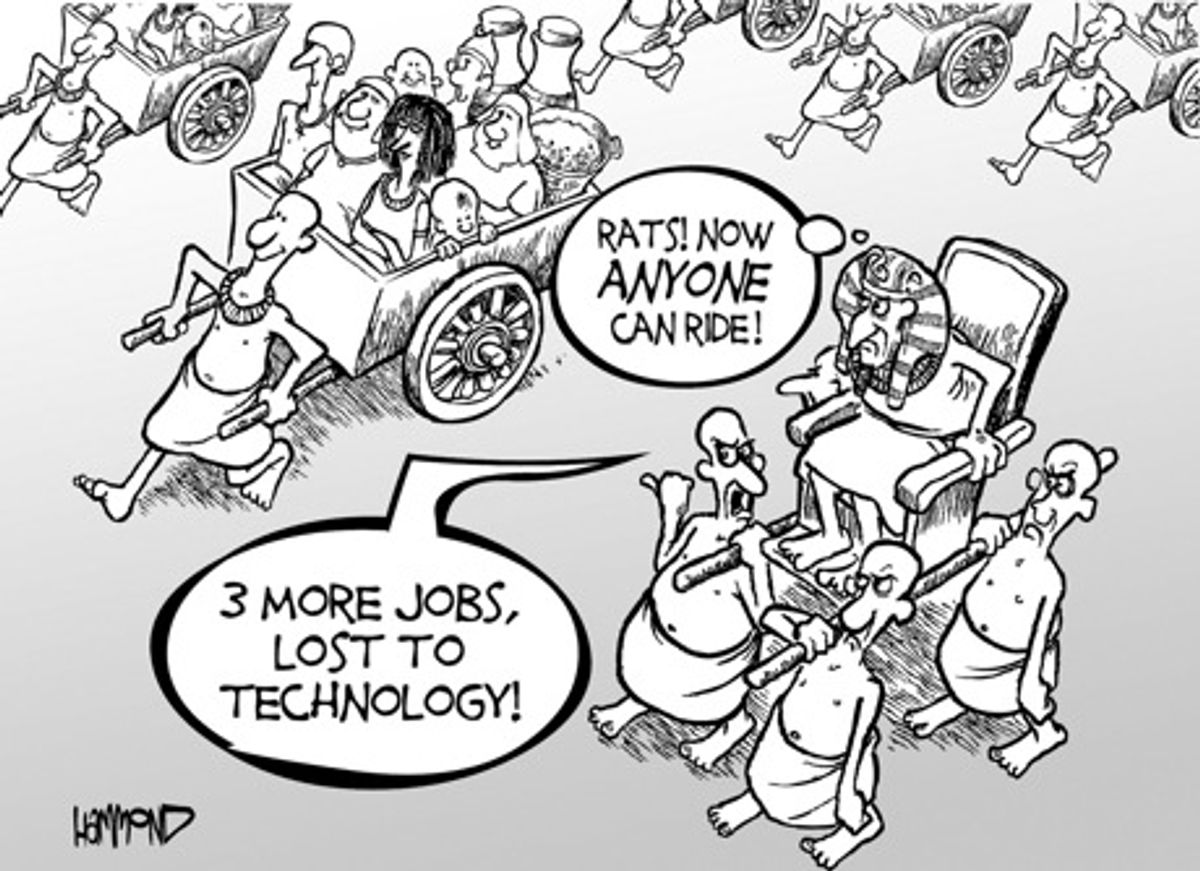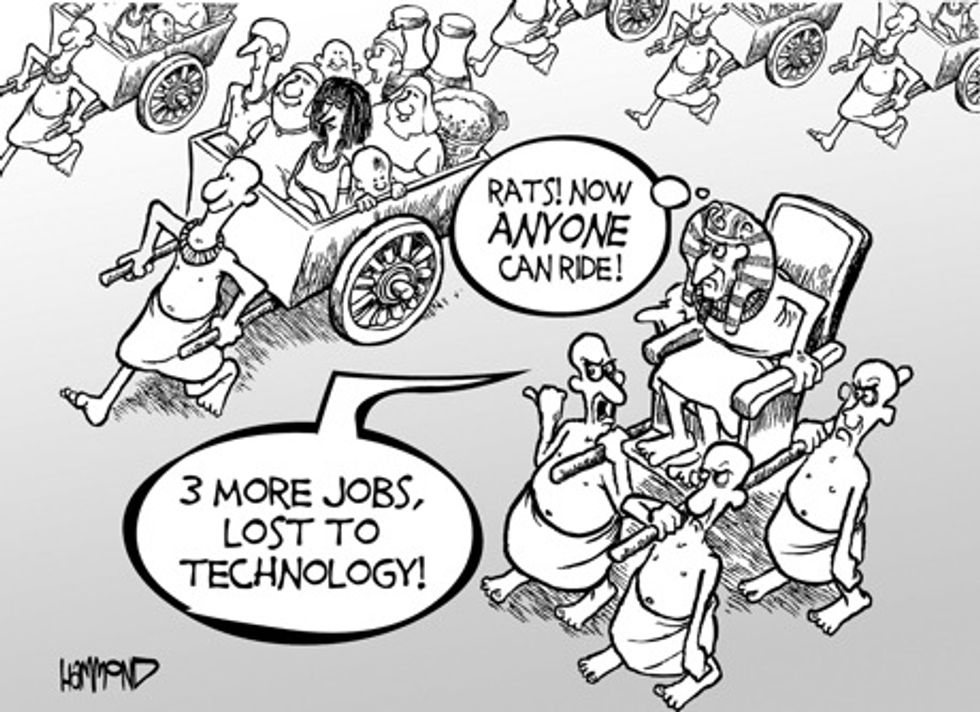Technology taking jobs is a notion that probably dates back to the invention of the wheel. After all, it took four bearers to carry the emperor and only one to pull a chariot!
The problem is that most people stop thinking after the first domino falls instead of following the chain of events further on. Let's continue the chain: Once the wheel is invented, more people can travel comfortably, goods can be carried farther, better roads are built and commerce thrives. A few bearers of the ruling class have to find new work, the remainder of the world benefits and thousands of jobs are created.
Let's fast-forward through history and take a look at the tractor. Now it happens that my grandfather bred workhorses. The family oral history has it that, upon the introduction of Henry Ford's tractor in the 1920s, the price of workhorses dropped 10 percent per week. My grandfather lost his farm, moved his family to Florida where my father at age 14 had the only job in this family of six, delivering newspapers. However, the advent of the tractor and modern farming techniques transformed the United States from a country where 40 percent of the population needed to farm to one in which 2 percent of the population could feed the other 98 percent. This freed a larger proportion of young adults to attend college and start the computer revolution that has created millions of jobs in the U.S. and worldwide.
Did people lose jobs to computers? Yes, a number of secretaries had to upgrade their skills, and executives who refused to learn to type had a tough time of it, just to cite two examples. But these jobs were replaced by tens of thousands of high-paying software engineering positions, plus computer installers, computer operators, data storage firms and more.
Simplistic thinking visualizes a fixed pool of jobs, with new technology taking some away. In reality, new technologies create new opportunities for many more people, specially our children. In the case of robots, the direct new jobs involve designing, building, programming, integrating, installing, servicing, maintaining, managing and refining the machines. Robots will enable humans to work in hostile environments where they could never work before: for instance, farming the ocean floor, mining super subterranean excavations, manufacturing in space and in Antarctica all become realistic endeavors. Building on nano- and cosmic scales begin to become practicable. The limited imaginations that believe jobs will stay the same, except that robots will do them all, should take a look around them.
If it were true that technology makes people poorer, would we not find evidence of that all around us? Technology-poor countries would have full employment and technology-rich countries would have the lowest GDP per person. Instead, in technology-rich nations, so-called "poor" people often own cars and televisions, have a roof over their head and food for their tables.
Of course, anyone can argue that material wealth does not make for spiritual wealth; that's a matter for philosophers to wrestle with. And certainly there is room for improving systems for helping those in transition between jobs. But finding evidence that technological advance decreases material wealth for the general population is very difficult. Technology raises the floor for all; it is the great uplifter.
Jeanne Dietsch is co-founder and CEO of MobileRobots, based in Amherst, N.H.




